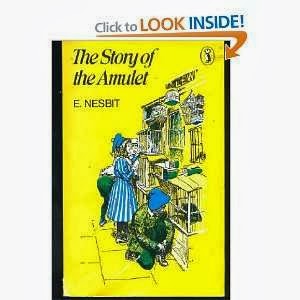We have pleasant avenues by the sides of the Thames, but we have too many cars, and Wells didn't mention those.
London's air is dirty, which would have disappointed Wells, but the river is clean and the streets are fairly clean. We would disappoint Wells by our propensity to wear black instead of gay colours. Although you don't generally see people who are ragged or dirty, you do see some. Busking on the bridge, for example. He imagined we would wear woollen robes. It would be lovely to have woollen robes, but few people wear wool at all. Clothes now are very cheaply produced and not expected to last, so making them of wool would be a terrible waste. He imagined that in the clean air, people would often wear white.
Wells imagined that Utopian London would be heated by electricity, which is largely true, although there are also gas boilers, and the roads are sealed, which they are, and there are hardly any dogs or horses, which again is true. So he thought the city would be clean - where did he think the electricity would come from? Had he not seen a power station, burning coal? No.
He thought everyone would be healthy, walk well, and have clear eyes and shapely bodies. Ah, well, they're not too bad, the Londoners, and in winter many of the office workers go running about in their lunch break displaying fit bodies. (In summer there are too many tourists in the way.) However, they are all shapes and sizes, and I can't say that Londoners have good complexions, but they are not too noticeably spotty either. He thought that the Utopians would put off the years of decay. Well, that is true, in that some lucky people remain healthy until very old age, but I am beginning to see that as a matter of luck. It is true that we have learned to look after our teeth, on the whole, but having said that I heard something awful on the radio this morning about children's teeth. - From today's Guardian -
The number of tooth extractions on children aged four and under in English hospitals has risen by almost a quarter over the past decade.
NHS data obtained by the faculty of dental surgery at the Royal College of Surgeons (RCS) shows there were 9,206 extractions within the age group in 2015-16 compared with 7,444 in 2006-07 – a 24% rise.
He said 90% of tooth decay is preventable through reducing sugar consumption, regular brushing with fluoride toothpaste and routine dental visits, but that 42% of children did not see a dentist in 2015-16 despite treatment being free for under-18s.
So 42% of children have parents who neglect their well-being. Not much of a Utopia, is it?
Wells says - "they have extended the level years far into the seventies, and age, when it comes, comes swiftly and easily." Hahaha. Old age never comes swiftly and easily. The quicker it comes, I would judge, the more of a shock it is.
However, he does talk about "a ripe, prolonged maturity. .. a grave deliberation, to a fuller and more powerful emotion, to a broader handling of life. " This is not the case at all. The drive for novelties is something Wells never anticipated.
He says that education and training in Utopia lasts until the student is twenty years old - 18 is normal in this country although some of the courses are of questionable value. He predicts the Gap year - "then comes the travel year" "and many are still students until 24 or 25." But he concedes that at this stage young adults need to take some responsibility for themselves, but says that their lives don't start in good earnest until the age of 30. He sees the Utopians settling down to marry at about this time, and before that they fool around with love "play", he calls it.
This is nice - "my eye is caught at once by a young negro, carrying books in his hand, a prosperous-looking, self-respecting young negro, in a trimly-cut coat of purple-blue and silver." Wells was really very unusual for his time in that he wasn't a racist but an internationalist who believed that all races would work together in one world.
He really fulminates against all the nonsense of racism, but is very longwinded.
Then he asks what other alternatives there are to his idea of synthesis of all nations to the World State. "Synthesis... does not necessarily mean fusion, nor does it mean uniformity." As one of his ironically outlined alternatives he predicts mass killings of foreign races, "race-destroying fumigations". He points out the process could go on over and over again.


